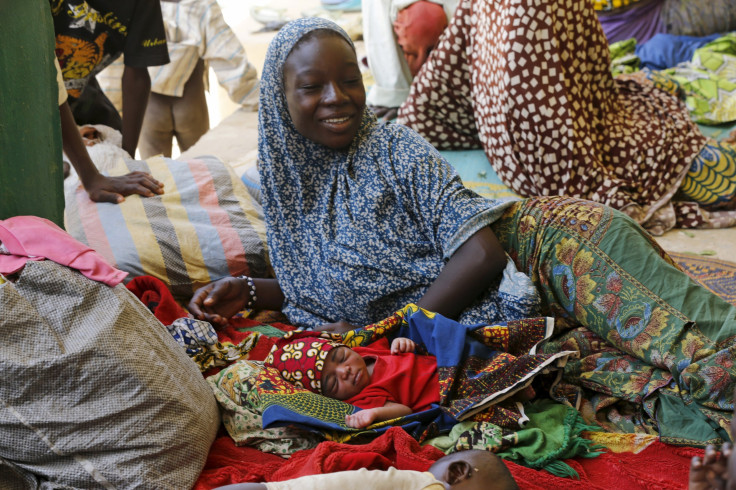Boko Haram Rescue: Pregnant Nigerian Women Deliver Babies At Refugee Camp After Being Displaced By Kidnappings

Nigerian women displaced by the Boko Haram insurgency recently gave birth to five babies in three days at a refugee camp in Sokoto state, Nigeria’s National Emergency Management Agency (NEMA) said. Many of the women and girls rescued from terrorist camps in recent weeks were pregnant.
Three baby girls and two baby boys were delivered at the Internally Displaced Persons (IDPs) camp at Kalambaina in Sokoto between May 7 and 9. Both the mothers and children were healthy, NEMA told Nigerian newspaper Leadership. The women, their babies and 2,000 other displaced persons were evacuated by the agency Wednesday from Yobo to Sokoto states.
More than 200 out of the nearly 700 women and girls recently rescued by the Nigerian army in Sambisa Forest were visibly pregnant, according to media reports. The United Nations Population Fund (UNFPA) told Vanguard in Lagos the organization had seen more than 16,000 pregnancies and deliveries in northeast Nigeria during the past year. Boko Haram militants have kidnapped more than 2,000 women and girls since the beginning of last year, many of whom were forced into sexual slavery and trained to fight, Amnesty International said last month.
Babatunde Osotimehin, the executive director of UNFPA, told the Associated Press the former female captives faced severe psychological trauma as well as stigma from their communities. “The most important thing is to restore their dignity,” Osotimehin told AP Sunday. “When you have been in captivity against your will and God knows whatever they have done to them, some of them will have been violated, some raped, food insecure … We need to take them, work with them and bring them back to the reality of their lives.”
The governor of Borno state, a Boko Haram hotbed, said he feared the women and girls raped by the Islamist extremists could be giving birth to future terrorists. "I am seriously worried with the fact that most women tend to hate and abandon children they deliver from rape. Now, the problem is that these children could go to the streets unattended to, they then lack access to food, health care and education. The result is that they could indeed inherit their fathers' (ideology) somehow," Gov. Kashim Shettima told government officials, according to AP.
© Copyright IBTimes 2024. All rights reserved.





















